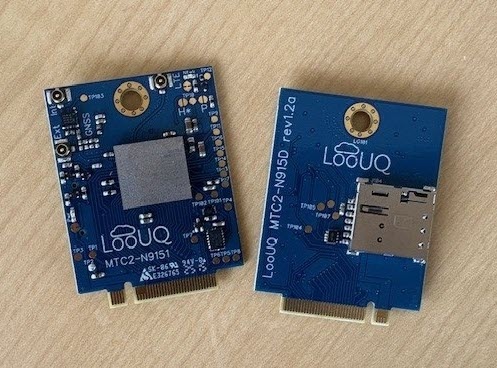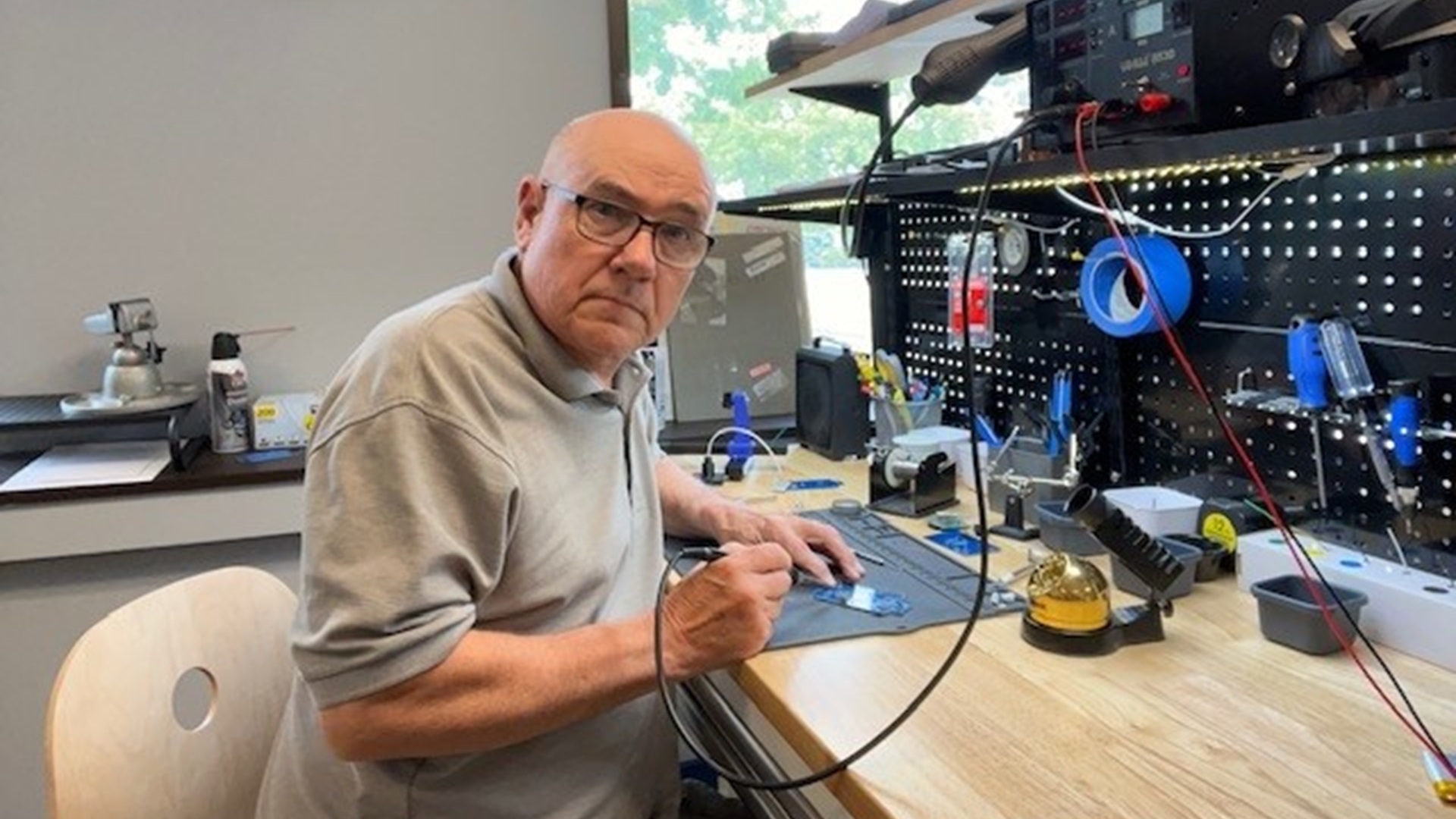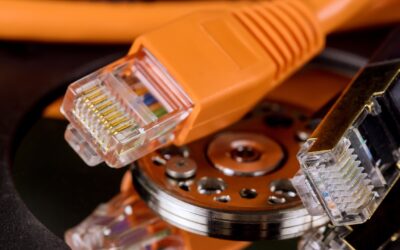As the lifeblood of the manufacturing and technology sectors, data’s collection, security, and efficient application might present challenges for some businesses. Through its cellular modems, LooUQ specializes in helping overcome those IoT obstacles.
“Whoever builds a core product has expertise in their industry,” said the company’s founder and CEO Greg Terrell. “They know sensors but are not familiar with how to get that data back home. They don’t wade into the Internet of Things pool. We’ll help them get that data back home and use it cost-effectively. We make cell phones for machines so they can call home.”

In April, LooUQ debuted the MTC2-N9151, its newest embedded modem based on the Nordic Semiconductor nRF9151 module, and it includes:
- Integrated MCU + modem: Because it has its own ARM Cortex-M33, it can perform sensing/control tasks locally without always relying on an external host MCU. That saves parts, simplifies designs, possibly improves latency, and reduces data transmission needs.
- Flexible connectivity: Supporting both LTE-M/NB-IoT and DECT-NR+ gives flexibility: you can use public cellular networks or set up a private network depending on cost, geography, or security requirements.
- Better power handling: Automatic switching of GNSS LNA circuits; DECT-NR+ option (which may allow for lower power deployments), etc., suggest designs focused on keeping power use low—valuable for battery-powered IoT devices.
- Security built in: With modern security features (TrustZone, CryptoCell), you get a more robust foundation for protecting data and device integrity. Important especially for remote or critical sensors.
Terrell compared the latest product to his company’s previous models, the LTEm1 and LTEm2: “It’s similar in functionality. It works in wireless systems and has GPS location services. The MTC2 has its own processor, so there’s no need for an outside processor. It uses less than half the power of the originals, which opens up new battery opportunities.”
He added, “Power is the constraint. How much juice is needed to run the modem? A lot of these devices are not plugged into the wall. We’re working to run these off smaller batteries and small solar panels.”
Because of their functionality, LooUQ’s modems are valuable in diverse data collection devices, including solar panel systems, trucks, GPS trackers, environmental monitoring systems, smart meters, and cellphones.The technology also has uses in industrial automation and smart agriculture through equipment health monitoring, temperature control, and leak detection in factories.The modems can aid farmers by managing data on soil moisture, water levels, livestock monitoring, and real-time weather updates.
Terrell takes pride in improving a company’s business and market position by adding to its IoT infrastructure.
“I am helping my customers deliver the best products they can to their customers,” he said.
With its consulting services, LooUQ’s goal is to rapidly create working sensors or control systems, train the workforce, and gather data to enhance efficiency and increase production, going beyond the hardware. Terrell will even help a business find and negotiate a deal with a cellular carrier that will optimize data transfer and cost.
Interesting modem uses: ice monitoring and a smart toilet
Terrell designed a prototype for a company in Colorado that measured snow melt on rooftops. In heavy snowfall regions, buildings often use electrical heat tape that melts the snow, preventing ice dam buildup that can cause roof and gutter damage.The heat tape is typically turned on in November and runs until April.
The prototype monitored the snow accumulation and turned on the heat tape only when the snowfall reached dangerous levels. The system was used in five buildings and saved one facility $4,000 a year in electricity costs. The program has not gotten past the pilot stage.
It is expected that smart monitoring systems are useful on the factory floor, vehicles, and edge devices, but what about a portable toilet such as the ones found on construction sites for the workers?
Yes, they can, Terrell said.
“Someone asked me, ‘Can you make my portable toilet smart?’” he explained. “I don’t want to drive out to a site every day to see if it needs to be emptied.”
Although it never got past development, a solar-powered monitoring device is a viable concept, which could be placed in a portable toilet to assess when it needs emptying, thus cutting down on trips, perhaps to multiple sites each day. That saves time and energy, making that business more eco-friendly, which is important to LooUQ’s mission.
“I’m very interested in sustainability and the many opportunities in IoT for making operations more sustainable through better use of resources,” Terrell said. “We offer a discount to companies that demonstrate improved sustainability.”
The company’s devices meet current environmental standards, and they use recyclable packaging.
As a small business that doesn’t have its own facilities, LooUQ uses Michigan-based production partners to develop its products. Its newest associate is Westshore Electronics in Holland, MI. This creates a shorter supply chain, reducing energy.
Past, present, future and giving something back
After its founding by Terrell at Michigan State University in 2016, LooUQ’s operations were moved to Traverse City, MI in 2019.
Following his career in computer communication, he made the decision to start his own company.
“I thought we were at an inflection point where processing power had gotten small and we could do innovative things,” Terrell explained. “I worked in corporate work and played around with this kind of technology and thought, ‘Now is the time.’
“I get to work on software and electronics and technology every day and not deal with budgets.”
Because Terrell is the only employee, LooUQ perfectly embodies a “small business.” He uses contract workers and outsources production to bring his technology to market.
He likens the situation to a symphony.
“I am not the instrument,” the CEO said. “I am the conductor. I have to figure out how it all works together.”
He said LooUQ is capable of making a big impact in the market. “We’re in a space where a smaller company can compete with larger firms. Technology enables small companies to exist like never before. You can collaborate across borders, use partners to do what you can’t do as well or as cost-effectively as the big companies can in the Internet of Things market.”
By continuing to innovate its modems, LooUQ intends to make them more sustainable and efficient for collecting and transferring data. How that impacts the company’s future workforce growth has yet to be determined.
Terrell said he envisions adding workers to the payroll, and they could be students he mentors.
“Mentoring is something I enjoy,” he said. “I like to see more engineers come along. There’s a limit to what formal schooling can do. Learning from industry experts is important in a hands-on experience.
“I am standing on the shoulders of those who came before me. I didn’t learn all this myself.”
To learn more about LooUQ, visit loouq.com




